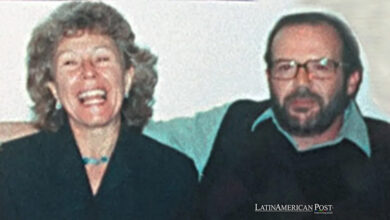Venezuela Resumes Talks with U.S. Amid Election Tensions

Venezuela’s government, led by President Nicolás Maduro, plans to resume negotiations with the U.S. this week. This move comes less than a month before a critical presidential election, marking a significant development in the country’s political landscape.
Venezuela’s government is set to restart negotiations with the United States this week, President Nicolás Maduro announced on Monday. This decision arrives at a crucial time, just weeks before a highly anticipated presidential election that poses the most formidable challenge Maduro and his United Socialist Party of Venezuela have faced in decades. Maduro, seeking a third term, emphasized the urgency of lifting the economic sanctions imposed by the U.S. in the past decade.
During his weekly television show, Maduro described the dialogue with the U.S. as “urgent.” He revealed that the Biden administration had been proposing talks for the past two months, and after careful consideration, he decided to proceed. “I have received the proposal from the United States government for two continuous months to reestablish talks and direct dialogue,” Maduro stated. “After thinking about it for two months, I have accepted, and next Wednesday, talks will restart with the United States government to comply with the agreements signed in Qatar and to reestablish the terms of the urgent dialogue.”
The upcoming election on July 28 is shaping up to be the most significant challenge the ruling United Socialist Party of Venezuela has faced in its 25-year history. The party, which has maintained dominance since Hugo Chávez’s presidency, aims to control all government branches for another six years. However, the party’s base is increasingly divided, diminished, and disillusioned.
Maduro is one of ten candidates on the ballot, but his primary rival is Edmundo González Urrutia, representing the opposition’s Unitary Platform coalition. The political landscape has been particularly dynamic, especially with the opposition’s strong momentum following the rise of leader Maria Corina Machado. Although Machado was initially a significant contender, the ruling party blocked her candidacy, leading to González becoming the opposition’s main candidate.
Last year, Maduro had agreed to improve conditions for a free and fair election through an agreement with the opposition coalition. However, as Machado’s popularity surged, posing a real threat to Maduro’s re-election, the government reverted to more authoritarian tactics, including blocking Machado’s candidacy and, subsequently, her substitute. Despite these challenges, the opposition has rallied behind González, a former diplomat.
Sanctions, Negotiations, and Economic Impacts
Maduro’s call for renewed talks with the U.S. highlights Venezuela’s severe economic pressures due to the sanctions. These sanctions were initially imposed to undermine Maduro’s government but have also contributed to significant financial hardship within the country. Lifting these sanctions is crucial for Venezuela’s economic recovery and stability.
The Biden administration has not commented on Maduro’s announcement, but the proposed talks signal a potential shift in relations between the two nations. Last year, the U.S. granted Maduro some relief from sanctions following his agreement with the opposition coalition. However, this relief was withdrawn as the ruling party continued manipulating government institutions to maintain power, including blocking key opposition candidates.
The economic sanctions have exacerbated Venezuela’s already dire financial situation. The country has faced hyperinflation, widespread poverty, and a collapse in public services. These conditions have fueled political discontent and have become a central issue in the upcoming election. For Maduro, securing relief from sanctions is about economic recovery, gaining political leverage, and stabilizing his government.
The political developments in Venezuela are closely watched across Latin America, a region that has seen its share of political upheavals and ideological battles. Venezuela’s situation serves as a critical case study for other nations grappling with their own political and economic challenges.
Latin American countries like Argentina, Brazil, and Mexico are observing Venezuela’s negotiations with the U.S. with interest. These talks could set precedents for how external powers engage with governments facing internal strife. The outcome of these negotiations and the subsequent election will have significant implications for the region’s balance of power and political dynamics.
Venezuela’s approach to sanctions, opposition, and international diplomacy could serve as a valuable case study for other left-leaning regional governments. Countries with similar political structures and challenges may learn from Venezuela’s experiences in managing economic sanctions and navigating complex relationships with powerful nations like the United States, thereby enriching their own political strategies.
Moreover, the role of regional organizations such as the Organization of American States (OAS) and the Union of South American Nations (UNASUR) in mediating and supporting democratic processes in Venezuela will be crucial. These organizations are vested in promoting stability and democratic governance across the continent.
Potential Outcomes and Challenges
As Venezuela gears up for the upcoming election, the resumption of talks with the U.S. presents both opportunities and challenges. These negotiations could pave the way for significant economic relief and a more stable political environment, offering a glimmer of hope for the country’s future. However, the deeply entrenched political divisions and the government’s control over critical institutions remain substantial hurdles.
For Maduro, the stakes are incredibly high. Winning a third term would solidify his control, but he must navigate the growing dissatisfaction within his party and the broader population. The opposition united behind González, represents a formidable challenge, particularly in the wake of Machado’s disqualification, which has galvanized opposition supporters.
The international community will be closely monitoring the election and the negotiations. Ensuring the election is free and fair is paramount, as any perceived irregularities could lead to further unrest and international condemnation. The role of international observers and regional organizations will be crucial in upholding the integrity of the process and reassuring the public.
Also read: Venezuela’s Covert Oil Shipments Sustain Cuba Amid Fuel Crisis
Venezuela’s decision to resume negotiations with the U.S. amid the upcoming presidential election highlights the complex interplay of domestic and international politics. The outcomes of these talks and the election will have far-reaching implications for Venezuela and the broader Latin American region. As the country navigates this critical juncture, the lessons learned will resonate across the continent, influencing political strategies and international relations for years.





